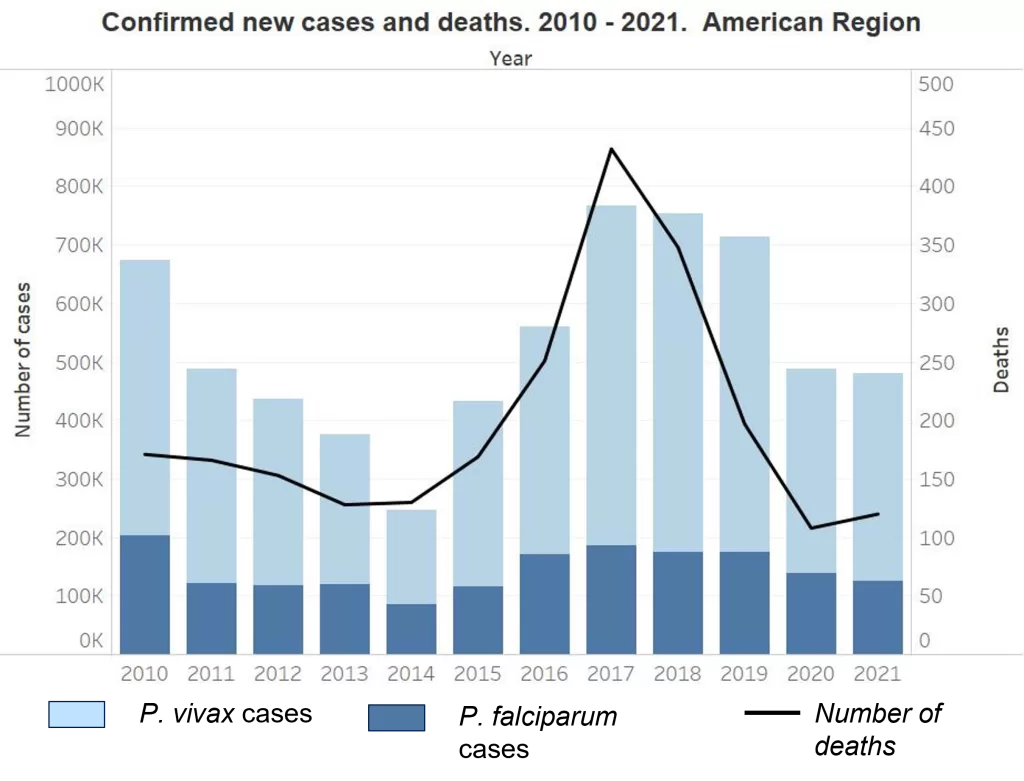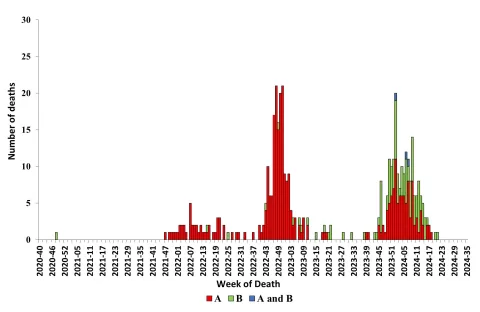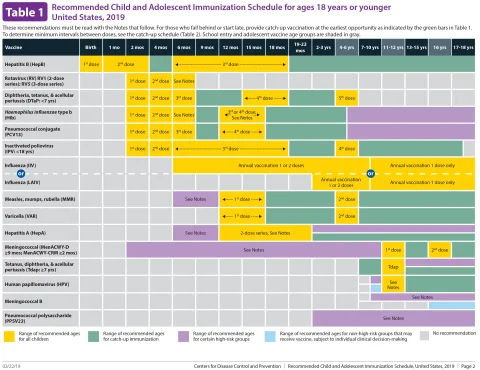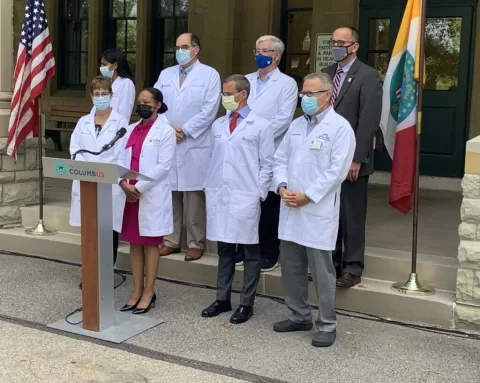The New Jersey malaria case recently reported by the NJ Department of Health has raised concerns over locally transmitted malaria in the state. This specific case involves a Morris County resident with no prior international travel history, marking a potential return of locally transmitted malaria, a scenario not seen since 1991. Health officials are keenly observing this situation, particularly because Anopheles mosquitoes, the carriers of this mosquito borne disease, are present in New Jersey. As investigations continue, the NJ Department of Health is urging communities to adopt malaria prevention strategies to protect residents. This unusual case serves as a reminder of the ongoing importance of public health vigilance against vector-borne diseases.
The recent identification of a malaria case in New Jersey, announced by the NJ Department of Health, shines a spotlight on the resurgence of this potentially fatal mosquito-borne illness within the state. In particular, a resident from Morris County has become the focus of investigation due to their lack of travel outside the country, raising questions about local transmission routes. Similar cases of locally acquired malaria are being noted across various regions, emphasizing the necessity for heightened awareness and preventive measures. The NJ Department of Health is working closely with federal authorities to assess the situation and ensure the community is well-informed about the risks and recommendations. As health officials promote actionable steps for mosquito bite prevention and control, local residents are reminded of the critical role they play in safeguarding public health.
Understanding the New Jersey Malaria Case
The recent announcement by the New Jersey Department of Health (NJDOH) regarding a locally transmitted malaria case in Morris County has raised both concern and awareness. With this being the first potential case of locally acquired malaria since 1991, health officials are taking proactive steps to contain the situation and ensure public safety. NJDOH is investigating the circumstances surrounding the infection, especially since the individual has no international travel history. This anomaly emphasizes the importance of monitoring mosquito-borne diseases within the state and highlights how even minor changes in transmission patterns can lead to significant public health alerts.
Local transmission of malaria is rare in New Jersey, as shown by the historical data; the NJDOH typically sees about 100 travel-related malaria cases annually. The state’s investigation, however, indicates that transmission may be happening more frequently than previously understood, which necessitates a closer examination of mosquito populations and their behavior. As health officials work alongside the Centers for Disease Control and Prevention (CDC), they stress the importance of continued vigilance in identifying potential malaria cases and ensuring the community is informed about prevention measures.
Preventing Mosquito-Borne Diseases
Prevention strategies for mosquito-borne diseases, including malaria, are crucial to protecting public health. The NJDOH recommends several precautionary measures for residents, particularly in areas like Morris County where Anopheles mosquitoes have been identified. It is essential for community members to take action, such as removing standing water, which serves as breeding grounds for mosquitoes, and utilizing mosquito repellents when outdoors. Additionally, understanding the lifecycle of mosquitoes can empower individuals to limit their exposure to bites and thus decrease the chances of contracting diseases.
Another key component of malaria prevention is public education. The NJ Department of Health is encouraging residents to be aware of symptoms associated with malaria, including fever, chills, and flu-like illness, and to seek medical attention promptly if they suspect exposure. In collaboration with public health officials, campaigns aimed at raising awareness of locally transmitted malaria and other mosquito-borne diseases can help mitigate risks. By fostering a well-informed community, New Jersey can significantly reduce the likelihood of similar cases occurring in the future.
Role of the NJ Department of Health in Malaria Surveillance
The NJ Department of Health plays a pivotal role in the surveillance and management of mosquito-borne diseases, including malaria. By monitoring reports of infections and conducting investigations like the one currently underway in Morris County, the NJDOH aims to understand patterns of transmission and the potential emergence of locally transmitted cases. This vigilance is crucial to public health as it allows for timely interventions and the implementation of preventive measures.
The NJDOH collaborates with environmental agencies to assess mosquito populations and their breeding habitats throughout the region. Continuous communication with the CDC enhances the effectiveness of these efforts, ensuring that New Jersey is prepared to handle malaria and other vector-borne diseases appropriately. The department’s commitment to research and education underscores the importance of definitional boundaries in disease prevention and control, thus protecting the health and wellbeing of its residents.
Community Involvement in Malaria Prevention
Community involvement is a critical element in combating malaria and other mosquito-borne illnesses. For effective control, residents, local organizations, and public health agencies must work in concert to address the threats posed by mosquitoes. Encouraging neighborhood clean-up initiatives to eliminate stagnant water and promote healthy environments directly contributes to reducing mosquito breeding sites. By fostering a culture of engagement, communities can better prepare for and respond to potential health threats like locally transmitted malaria incidents.
In Morris County and other areas identified at risk, educational programs are vital for raising awareness about preventive measures and promoting well-being. The NJDOH and local health departments regularly provide resources to educate citizens on how to minimize exposure to mosquito-borne diseases. By actively participating in community health initiatives and sharing knowledge on malaria prevention, individuals can significantly contribute to curbing outbreaks and ensuring a healthier environment for all.
Lessons from Malaria Cases in New Jersey and Beyond
The investigation into the potential locally transmitted malaria case in New Jersey, along with similar reports from states like Washington, serves as a reminder of the persistent risks posed by mosquito-borne diseases. These instances reveal that while malaria is uncommon in the United States, it is not entirely out of reach. Learning from these cases emphasizes the importance of preparedness and prompt response mechanisms to identify and address emerging public health threats.
Countries around the world continue to battle malaria and other mosquito-borne diseases, and their experiences can provide valuable lessons for New Jersey’s approach to managing these threats. The collaboration between health agencies, effective communication, and early intervention strategies can significantly minimize outbreaks. By understanding and adapting strategies employed domestically and internationally, New Jersey can enhance its public health framework and effectively manage the risks associated with locally transmitted malaria.
Understanding Anopheles Mosquito Habitats
Understanding the habitats where Anopheles mosquitoes thrive is essential for malaria prevention. These mosquitoes are typically found in areas with stagnant water, which serve as breeding grounds. In New Jersey, the presence of wetlands, ponds, and containers that can collect rainwater creates environments conducive to the mosquito lifecycle. Therefore, identifying and managing these habitats is crucial for reducing the risk of malaria transmission and other vector-borne diseases in the state.
To mitigate the threat posed by these mosquitoes, public health officials recommend community awareness initiatives that instruct residents on how to identify potential breeding sites. Efforts such as mosquito surveillance programs can help track populations and assess their breeding activities. By engaging the community in monitoring and reporting stagnant water sources, New Jersey aims to control mosquito populations effectively while preventing the resurgence of diseases like locally transmitted malaria.
The Impact of Climate on Malaria Transmission Risk
Climate factors significantly influence the transmission dynamics of malaria. Warmer temperatures and increased rainfall can create favorable conditions for mosquito populations to thrive. As climate change continues to influence weather patterns, regions once considered low risk may experience rising malaria transmission rates. New Jersey’s fluctuating climate patterns necessitate close monitoring and adaptive responses from the NJ Department of Health to address these changes and mitigate associated health risks.
Moreover, understanding how climate impacts mosquito behavior is vital for developing effective prevention strategies. The NJDOH is keenly aware of how seasonal changes can affect the lifecycle of mosquitoes, impacting the timing and likelihood of malaria outbreaks. Public health messaging is essential during warmer months when the risk of mosquito-borne diseases may increase. By integrating climate data with epidemiological research, state health officials can work toward timely interventions and educate the community on adjusting preventive practices according to changing environmental conditions.
Engaging with the CDC for Comprehensive Malaria Control
The partnership of the NJ Department of Health with the Centers for Disease Control and Prevention (CDC) is integral to developing comprehensive strategies for malaria control. This collaboration enables New Jersey to access national expertise and resources, ensuring that local strategies are grounded in the latest research and best practices. By engaging with the CDC, the NJDOH can stay ahead of potential disease outbreaks and craft effective public health responses tailored to evolving challenges.
This collaboration encompasses not only surveillance and investigation but also the development of educational programs that inform the public about malaria prevention. By aligning local efforts with federal guidelines and recommendations, New Jersey enhances its ability to detect, respond to, and prevent potential malaria cases and other mosquito-borne diseases. The state’s proactive stance in such partnerships illustrates its commitment to safeguarding the health of its residents and responding dynamically to emerging health threats.
Local and State Initiatives to Combat Malaria
Local and state initiatives play a pivotal role in combating malaria and other mosquito-borne diseases in New Jersey. Through coordinated efforts between local health departments and state agencies, proactive measures are put in place to monitor mosquito populations, conduct educational outreach, and promote sanitation practices that limit mosquito breeding. Initiatives that engage residents in understanding the importance of maintaining clean environments can significantly reduce the risk of locally transmitted malaria.
State programs designed to educate communities about malaria prevention also help foster a culture of awareness. By providing resources and campaigns focusing on mosquito control, the NJ Department of Health can ensure that residents are equipped with the knowledge needed to protect themselves. Continuous investment in both local and state initiatives underscores the importance of collective responsibility in addressing the challenges posed by mosquito-borne diseases and maintaining public health.
Frequently Asked Questions
What is the significance of the New Jersey malaria case reported by NJ Department of Health?
The significance of the New Jersey malaria case reported by the NJ Department of Health lies in the fact that it could be the first locally transmitted malaria case in New Jersey since 1991. This highlights the ongoing potential for mosquito-borne diseases in the state, prompting health officials to initiate investigations in collaboration with the CDC.
How is the NJ Department of Health responding to the new malaria case in Morris County?
The NJ Department of Health is actively investigating the malaria case in Morris County. They are collaborating with the CDC to explore possible sources of infection and are urging the public to take preventive measures against mosquito bites and to eliminate standing water.
What measures can be taken for malaria prevention in New Jersey?
Malaria prevention in New Jersey includes avoiding mosquito bites by using repellents, wearing protective clothing, and ensuring that areas around homes are free from standing water, where mosquitoes breed. Awareness of travel-related malaria cases is also crucial for effective prevention.
How does the local malaria case in NJ compare to similar cases in other states?
The local malaria case in New Jersey is comparable to recent cases in Washington State, where health officials have also reported similar locally transmitted malaria cases. Both states are experiencing heightened surveillance and public health messaging to mitigate the risk of mosquito-borne diseases.
What types of mosquitoes are responsible for locally transmitted malaria in New Jersey?
The Anopheles mosquitoes are responsible for locally transmitted malaria in New Jersey. Although these mosquitoes are present, the overall risk of malaria transmission remains low, according to the NJ Department of Health.
What can residents do to stay informed about malaria in New Jersey?
Residents can stay informed about malaria in New Jersey by following updates from the NJ Department of Health, participating in community health initiatives, and being vigilant about mosquito prevention measures, particularly during warmer months.
Is the risk of locally transmitted malaria high in Morris County, NJ?
Currently, the risk of locally transmitted malaria in Morris County, NJ, remains low, despite the recent case reported. The NJ Department of Health emphasizes the importance of public awareness and preventive actions to maintain this low risk.
What steps should individuals returning from travel take regarding malaria?
Individuals returning from travel, especially from areas with ongoing malaria transmission, should seek immediate medical attention if they experience any symptoms of malaria. Prompt diagnosis and treatment are essential in preventing the spread of infections.
How does the NJ Department of Health work to control mosquito-borne diseases?
The NJ Department of Health works to control mosquito-borne diseases through surveillance, public education campaigns, and collaboration with local health departments and the CDC to monitor potential outbreaks and improve mosquito control measures.
What is the current situation with malaria cases in New Jersey?
As of now, New Jersey has reported a potentially locally transmitted malaria case in Morris County, with ongoing investigations by the NJ Department of Health. The state typically sees around 100 travel-related malaria cases each year, but the overall risk remains low.
| Key Point | Details |
|---|---|
| Investigation by NJDOH | The NJ Department of Health is investigating a local malaria case in Morris County. |
| No Travel History | The resident has no history of international travel. |
| Potential First Local Case Since 1991 | If confirmed, this would be the first locally transmitted malaria case in New Jersey since 1991. |
| Presence of Anopheles Mosquitoes | Anopheles mosquitoes, which can transmit malaria, are present in New Jersey, but the overall risk remains low. |
| Collaboration with CDC | NJDOH is working with the CDC to investigate the source of the infection. |
| Public Precautions Suggested | Officials recommend measures like avoiding mosquito bites and removing standing water. |
| Similar Case in Washington State | Washington is also investigating a similar case of locally acquired malaria. |
| Low Infection Risk | Health officials state that the risk of malaria infection in both New Jersey and Washington is very low. |
Summary
The New Jersey malaria case reported by the NJ Department of Health marks a significant moment as it could potentially indicate the state’s first locally transmitted malaria case in over three decades. This investigation highlights the importance of public health vigilance, especially with the presence of Anopheles mosquitoes in the region. As health officials collaborate with the CDC and promote proactive precautions to reduce mosquito exposure, it remains crucial for residents to stay informed and take measures to protect themselves, especially those who have traveled internationally.
The content provided on this blog (e.g., symptom descriptions, health tips, or general advice) is for informational purposes only and is not a substitute for professional medical advice, diagnosis, or treatment. Always seek the guidance of your physician or other qualified healthcare provider with any questions you may have regarding a medical condition. Never disregard professional medical advice or delay seeking it because of something you have read on this website. If you believe you may have a medical emergency, call your doctor or emergency services immediately. Reliance on any information provided by this blog is solely at your own risk.








